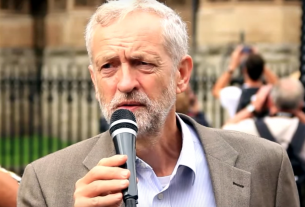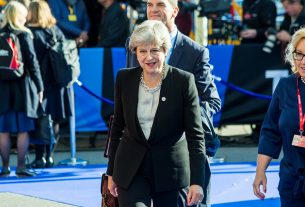A former chief constable has warned Britain is “dangerously” edging towards the type of “paramilitary policing” linked to “repressive regimes”.
Michael Barton, who was chief of Durham police and the Crime Operations lead for the National Police Chiefs’ Council, said ministers are “flexing their muscles via their police forces”. He and Sir Peter Fahy, another former senior police boss, expressed their “deep concerns” to the Guardian about the risk to the UK’s civil liberties.
The highly contentious policing bill – which swept through a Commons second reading last week – affords new extensive powers to the police which seriously impinge on the right to protest.
‘Democracies thrive on protest’
Barton said he is not in favour of new restrictions and told the Guardian: “Surely after an historically unprecedented year-long curfew, in peacetime, the government could show some common sense and gratitude for such incredible forbearance to allow civil liberties to once again flourish.
“Or are they happy to be linked to the repressive regimes currently flexing their muscles via their police forces?
“Fortunately, in the UK we are not a paramilitary-style police force. But these powers dangerously edge in that direction.”
Barton said democracies “thrive on protest” and that “[T]his government has condemned what has happened in the Ukraine but those same protesters would fall foul of our new laws.”
Kill the Bill protests in Bristol
His comments come in light of claims of police violence during Kill the Bill protests against the new legislation in Bristol on Friday (March 26], while a report into claims of “heavy handedness” at the Sarah Everard vigil just a week previously, is expected within the next 48 hours.
Dame Cressida Dick, commissioner of the Metropolitan Police, faced calls for her resignation after footage of aggressive male officers manhandling women at the vigil circulated on social media. Priti Patel ordered her Majesty’s Inspectorate of Constabulary to investigate if the police actions were proportionate or not. The home secretary also reintroduced the policing bill which has led to Kill the Bill protests and demonstrations around the country since.
Three protests over the course of one week in Bristol has seen more questions being asked about policing tactics after footage of clashes circulated, in which officers can be seen “chopping” their riot shields down on seated demonstrators.
Police ‘quietly retract’ erroneous claims about officers’ injuries
The protests followed clashes last weekend against the policing bill that saw erroneous media reports about injuries suffered by officers, including broken bones and a punctured lung. Bristol police later “quietly retracted” the claims that their officers had suffered such injuries.
“This is troubling,” tweeted barrister Jo Maugham, director of the Good Law Project. “The original reports were unequivocal about the injuries officers suffered. The Chief Superintendent misled the public about the injuries in a way that harmed the exercise of the right to protest. We really should have an explanation.”
Boris Johnson called the Bristol protestors a “mob intent on violence” and decried the “disgraceful attacks on police officers” who had bricks, bottles and fireworks being thrown at them by a mob intent on violence and causing damage to property. The police and the city have my full support.”
Barton earned reputation as a maverick
Barton agreed a three year contract extension before finally stepping down in 2019 after “39 years in uniform and seven years running Britain’s best performing police force”, and is described as having had a “radical approach to modern policing…earning him a reputation as something of a maverick.”
“When I started in policing 39 years ago, I had a much more simplistic view,” Barton said in his last interview before retiring, in which he revealed a big change in attitude from when he started with beliefs: “They’re villains, we are going to lock them up. We are going to put them before the courts, they are going to go to prison, job done.
“But then when I started locking up the sons and grandsons of the first burglars I had put away, I started to think this is a fool’s errand.
“All we are doing is regurgitating the same families to inflict further pain on future generations of victims. Well, that isn’t want [Sir Robert] Peel wanted us to do.”
Cummings operated in a ‘bubble of selfish privilege and denial’
He was a highly vocal critic of Dominic Cummings lockdown rule breaking trip to Durham that saw the former chief constable assert the prime minister’s top advisor operated in a “bubble of selfish privilege and denial.”
“I’m really angry about this on behalf of my former colleagues,” Barton said at the time, explaining the action – and lack of punishment – made it far more difficult for police to enforce the rules as they had been undermined by the government to save “one of their own”.
Cummings famously refused to quit as Johnson ignored calls to sack him. Until a power struggle at Number 10 brought about his departure.




